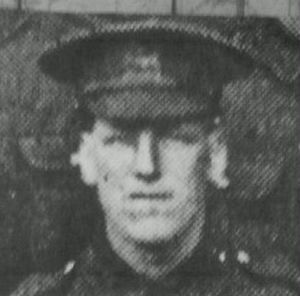Charles Pawsey facts for kids
Sir Charles Ridley Pawsey (born July 14, 1894 – died July 21, 1972) was a British official who helped govern parts of the British Empire. He was known for his bravery and leadership, especially during World War II.
Contents
His Early Life and Army Days
Charles Pawsey was born in Surbiton, England. His father was a high-ranking financial officer in the British Navy. Charles went to Berkhamsted School and then Wadham College, Oxford for his education.
When World War I started in 1914, he joined the army as an officer in the Worcestershire Regiment. He showed great courage and was awarded the Military Cross twice, once in 1916 and again in 1917. The Military Cross is a special award for bravery in battle. He left the army in 1921.
Working in India
In 1919, Charles Pawsey joined the Indian Civil Service. This was a group of British officials who helped run India when it was part of the British Empire. He worked in different important roles in Assam, a region in India.
One of his most famous roles was as the District Commissioner of the Naga Hills during World War II. This area was very important during the Burma Campaign, which was a major part of the war against Japan.
The Battle of Kohima
From 1942 to 1944, the Japanese army was fighting in Burma. In 1944, they attacked Kohima in the Naga Hills. This led to a very important battle called the Battle of Kohima. Sir Charles Pawsey's own house and tennis court became a key part of the fighting. This part of the battle was even called the Battle of the Tennis Court.
During the siege of Kohima, which lasted from April 5 to April 20, 1944, Sir Charles Pawsey bravely refused to leave. He stayed to help the British soldiers and the local Naga people. He worked hard to keep everyone's spirits up and support the army commander. The Naga people were very loyal to him. Because of their loyalty, their tribal leaders were later introduced to Lord Mountbatten, a very important British leader, in August 1944. The British army eventually won the battle, which was a turning point against the Japanese in Burma.
After the War
Before India became independent in 1947, Sir Charles Pawsey wrote to the local Naga people. He advised them that it would be better for them to have self-rule within India rather than becoming completely independent. He believed that full independence might lead to problems like tribal fighting, no hospitals, no schools, and less trade.
He was given the title of 'Sir' (knighted) in 1947 for his important work. He retired in 1948 and lived in England until he passed away in 1972.
His Family
In 1954, when he was about 60 years old, Sir Charles married Rita.
See also
 | William M. Jackson |
 | Juan E. Gilbert |
 | Neil deGrasse Tyson |


